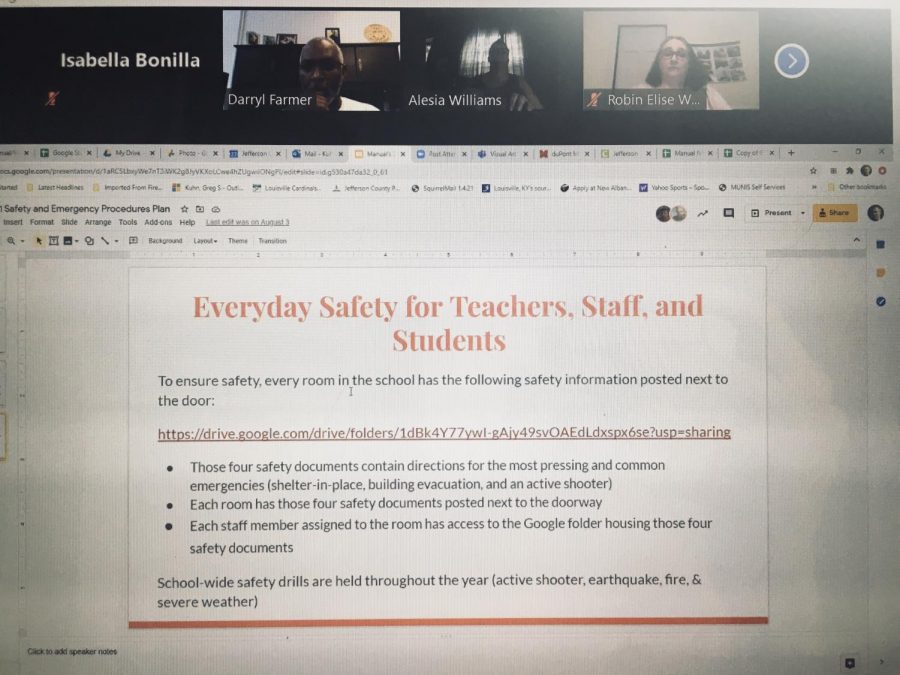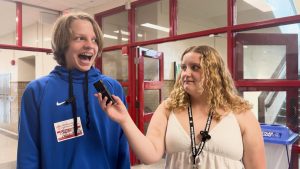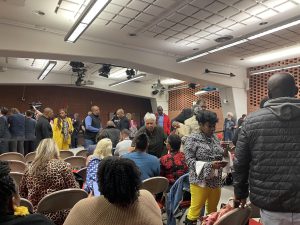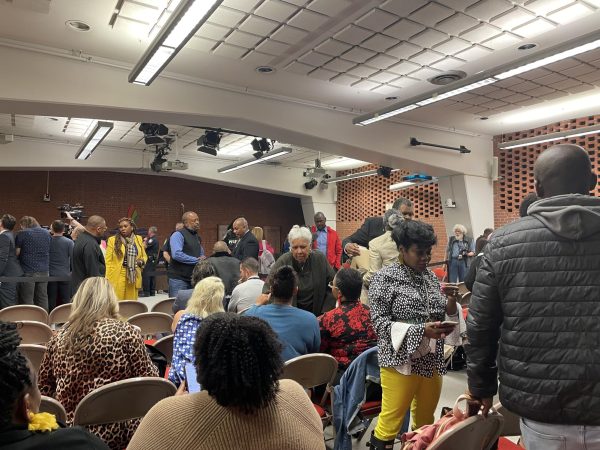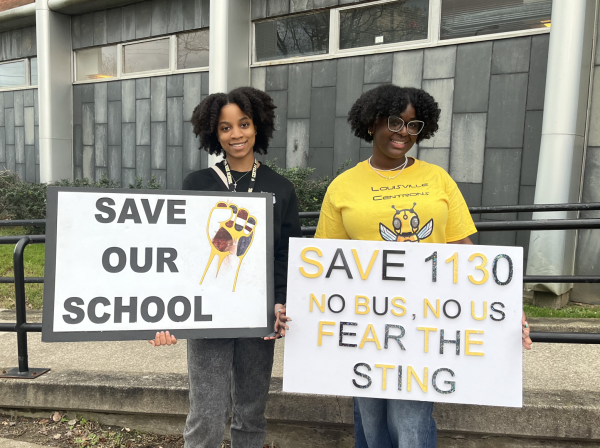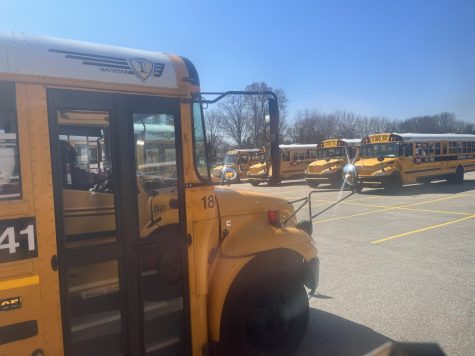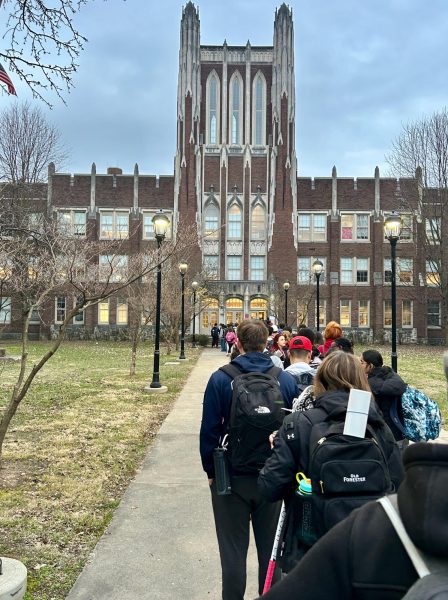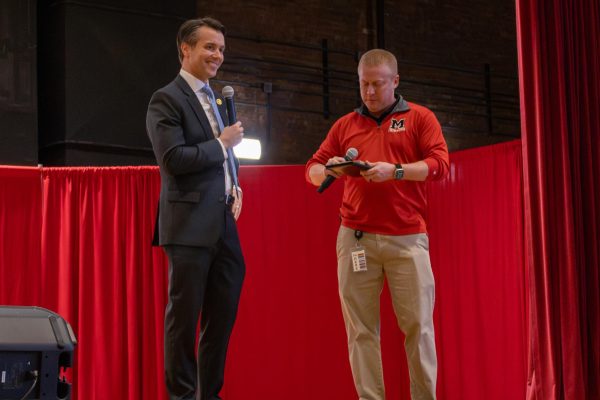August’s SBDM meeting reviews school safety and REAP policies
August 27, 2020
Manual’s August virtual SBDM meeting began at 3:04 p.m. after all members and several guests joined.
Manuals August SBDM meeting is starting now. Follow for updates.
— Manual RedEye (@manualredeye) August 27, 2020
Assistant Principal Kuhn presented Manual’s updated safety plan after the July meeting minutes were approved. These are the four safety documents containing directions for the most common and pressing emergencies (such as shooters, earthquakes and fires) posted in each school classroom. Currently, there is an online folder for every single classroom and it is no longer teachers’ sole responsibility to create and print the documents themselves. Teachers may print more copies, reprint and have more autonomy and access to the materials. Updates were also needed because of Manual’s ongoing renovations.
“Every JCPS school creates a safety manual specific to their facility. The two primary functions of this document are one, for those outside the facility to know exactly where things are and how things work and two, for everyone within the facility to know who does what, how things function and where things are,” Mr. Kuhn said. “Everyone has a role to play in an emergency situation.”
Mr. Kuhn presents Manual’s safety plan, and the motion to approve this plan has passed.
— Manual RedEye (@manualredeye) August 27, 2020
The SBDM committee voted to approve Manual’s updated safety plan.
Next on the agenda is the review of REAP policies. Policies are being looked at one by one to be approved or change.
— Manual RedEye (@manualredeye) August 27, 2020
Next on the agenda was reviewing the REAP (Racial Equity Analysis Protocol) policies from last school year. The committee reviewed the various policies to see if there was anything they needed to modify or if the REAP could pass again as is. Mr. Applegate questioned how the REAPs should be addressed in regards to NTI 2.0, which proved to be an overarching theme as they reviewed each policy.
The acceptance of the Discipline Management/ School Safety REAP was motioned to approve by Ms. Williams.
— Manual RedEye (@manualredeye) August 27, 2020
The first REAP to be reviewed was Classroom/Discipline Management/School Safety. It was passed with no changes made.
“We’re still going to follow the student policy intervention handbook when we deal with any kind of discipline,” Principal Darryl Farmer said in relation to how the policy may potentially change with NTI 2.0.
The protection of instructional time policy REAP (Racial Equal Action Policy) is mentioned to pass.
— Manual RedEye (@manualredeye) August 27, 2020
The next REAP reviewed was the Protection of Instructional Time Policy. There was debate over this policy at first due to the changes from in class to virtual meetings. Manual teacher Ms.Williams (English) expressed concern over dual credit students who had University of Louisville classes that conflicted with virtual Manual classes.
“This policy reflects a face to face. Everything is operating on those six weeks and then we go back to brick and mortar…We’ve never run into this problem,” Mr. Farmer said.
The policy was passed, with the resolution that there would be no need for change since JCPS is scheduled to go back after six weeks, which would solve the dilemma.
Homework Policy is motioned by Robin Elise Weiss and has passed.
— Manual RedEye (@manualredeye) August 27, 2020
The homework Policy was re-evaluated after. The committee had some issues with the language used in this REAP. They wanted a more concrete explanation on the definition of homework, its purpose and value.
“I would like more language about what homework should not be. What will support what is supposed to be in the classroom rather than the student teaching themselves,” YPAS teacher Brian Hinds (Theatre) said.
Both Mr. Hinds and board member Robin Elise Weiss motioned to review the REAP and revise it to include this language. This motion was approved and they are set to present the revision at the next SBDM meeting.
The final REAP was the Dress Code policy, which didn’t pass the REAP review last year and was sent to the JCPS Culture and Climate Committee for further advice and insight. Their recommendations were to address students’ hardships and maintain gender and racial equity in the dress code. The SBDM committee took these comments into consideration and decided the policy needed more revision to meet these standards; thus, the REAP was not passed.
Robin Elise Weiss also mentions Dress Code Policy plans to be advised.
— Manual RedEye (@manualredeye) August 27, 2020
Weiss motioned to make a small committee consisting of her, board member Kim Ryan, Ms. Williams and Mr. Hinds to reconvene as a subcommittee and work on rewriting the dress code policy. This motion was approved and the subcommittee is set to bring a revised, more equitable dress code policy to the next SBDM meeting.
Mr. Farmer closed by discussing Manual’s NTI 2.0 progress and future potentials for the virtual school plan. He said that they even may start assigning student aides and peer tutors to help teachers with NTI troubleshooting.
“It’s a little bumpy start, but it’s working,” said Farmer. “We’re going to make this the best platform we can.”
The meeting adjourned at 4:05 p.m.


